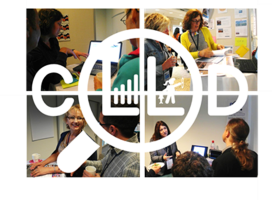| If the message is not displayed correctly, please view it under this link. |

July 2016 |

Results-oriented CLLD: 10 tools to analyze FLAG achievements and more
The second FARNET transnational seminar “Results oriented CLLD in fisheries areas” took place in Helsinki, from the 24th - 26th May 2016. During those two sunny days, over 90 FLAGs, but also representatives from the World Bank, the EC Joint Research Centre and the FAME Support Unit took part in the discussions and exchanged on better ways of ensuring CLLD results on the ground and measuring impacts.
In total, over 140 participants from 19 countries got together to exchange on ways to develop better strategies, learn how to use SMART indicators and targets, design the best CLLD tools to develop monitoring systems, steer the delivery of fisheries CLLD and assess the broader impact of FLAG work. The future is now open for these to be used! The event was also the opportunity to take stock of existing tools and methods which have been used by FLAGs from the 2007-2013 period, or recently designed by new FLAGs starting their operations for the 2014-2020 period. These tools were presented in an interactive “tool fair”, where FLAGs and other CLLD stakeholders from Denmark, Finland, France, Germany, Latvia, Poland, Spain & UK showcased their best methods to gather, analyse and interpret data from their beneficiaries and territory. From participative websites to employment observatories, those tools give a series of ideas on how to ensure a regular, efficient and sometimes fun way of collecting your CLLD data. All are now available here, along with other presentations and outputs available on the main event page.   
|
|||||||||||||||||||||||||||||||||

Coastal communities react to refugee crisis
Shocking images of people fleeing war, persecution, poverty and the impact of climate change have sadly become all too common on our screens. The desperate plight of those seeking refuge within the safety of the European Union has given rise to initiatives at local level providing first aid to migrants at the points of landing through to the European Commission’s action plan to promote successful integration of migrants within the EU and new “blue card” scheme proposals to simplify admission and improve the living conditions for highly-skilled workers from third countries.
There are many great citizen and community-led initiatives for migrants, refugees and asylum-seekers happening right now, both within and outside CLLD. As concerns EU funded projects under CLLD, in Germany, the FLAG Tirschenreuth organised a "FISCHtival of cultures and pleasures" to make newcomers and area inhabitants meet and bridge differences around the love of good food. As regards initiatives outside EU CLLD funding, Peyrelevade, a little village in the middle of France, has welcomed migrants coming from Nigeria, Iraq or Kosovo who are breathing new life into the local school, football team and business, as they wait to have their asylum demands processed. The deep compassion shown by ordinary people is proving to be a source of inspiration. Supportive action, taken at a local level, is making a big difference to refugees at the heart of this humanitarian emergency. DG MARE is particularly interested in initiatives that support integration in the local community. If your FLAG has supported such actions in the past or is planning a related activity in the future or if you have information on integration actions supported by other organisations in your area, get in touch with info@farnet.eu. Efforts to raise awareness about refugee support at local level are continuing. Expect to read more about them in a series of interviews in the next edition of the FARNET magazine.   
|
|
||||||||||||||||||||||||||||||||
|
||||||||||||||||||||||||
|
||||||||||||||||||||||||
 |
| Editor : European Commission,
Directorate-General
for Maritime Affairs and Fisheries, Director-General. Disclaimer : Whilst the Directorate-General for Maritime Affairs and Fisheries is responsible for the overall production of this newsletter, it is not responsible for the accuracy, content or views expressed within particular articles. The European Commission has not, save where otherwise stated, adopted or in any way approved any view appearing in this publication and statements should not be relied upon as statements of the Commission’s or the Directorate-General for Maritime Affairs and Fisheries’ views. The European Commission does not guarantee the accuracy of the data included in this publication, nor does the European Commission or any person acting on its behalf accept responsibility for any use made thereof |








